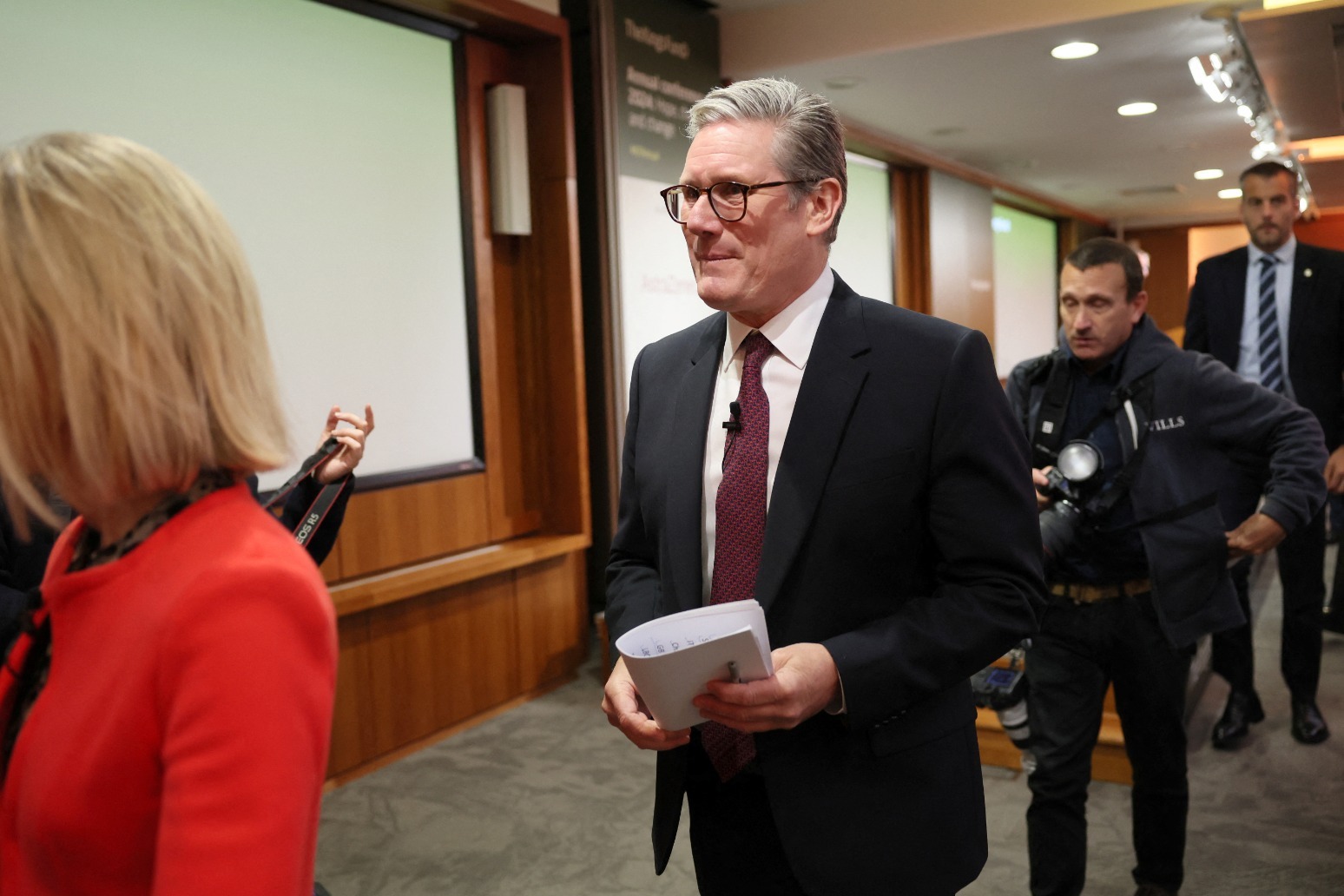
No more money for NHS without reform, says Starmer
There will be no more money for the NHS without reform, the Prime Minister has said, as he acknowledged that not all of his policies aimed at improving the nation’s health will prove popular.
Sir Keir Starmer said his 10-year plan for the NHS would be about changing it into a “neighbourhood health service”.
He said this would mean “more tests, scans, healthcare offered on high streets and town centres, improved GP access, bringing back the family doctor, offering digital consultations for those that want them, virtual wards and more patients safely looked after in their own homes where we can deal with problems early before they are off work sick and before they need to go to hospital”.
Sir Keir also pledged to drive up productivity in hospitals so more patients can be seen and boost efforts to prevent ill health rather than just treat it.
Addressing the King’s Fund annual conference in London, the Prime Minister acknowledged that tackling problems in the NHS will take a long time, but said work had already begun in some areas.
He also committed to driving up the use of technology, giving the example of the urgent need to speed up test results in A&E.
He said: “Reform does not mean just putting more money in.
“Of course, even in difficult financial circumstances, a Labour Government will always make the investment in the NHS that is needed, but we have to fix the plumbing before we turn on the taps.
“So, hear me when I say this, no more money without reform.
“I’m not prepared to see even more of your money spent on agency staff who cost £5,000 a shift, on appointment letters which arrive after the appointment, or on paying for people to be stuck in hospital just because they can’t get the care they need in the community.
“Tonight, there will be 12,000 patients in that very position – that’s enough to fill 28 hospitals.
“NHS staff are working harder than ever but productivity has fallen because patients can’t be discharged.
“Clinicians are spending their time trying to find beds rather than treating more patients.
“That isn’t just solved by more money, it’s solved by reform.”
Sir Keir was responding to a damning report from respected surgeon and former health minister Lord Darzi, which lays bare the problems in the health service.
The rapid review, carried out in nine weeks, says the health service “is in critical condition, but its vital signs are strong”.
It sets out widespread issues, including a failure to cut waits in A&E, missed targets for treatment and cancer care, alongside low productivity in hospitals despite investment in staffing.
The Prime Minister said he would “accept the challenge” of fixing the NHS but warned it would be “measured in years, not months”.
Asked what he would say to patients who are ill now about how he will fix the NHS given it will require time and money, Sir Keir said: “We’re going to fix this with the first steps, but we’re going to do the long-term change.”
He added: “I accept the challenge to me, which is that it’s going to take a long time, it’s going to be measured in years, not months, and we need to have something to say for someone who is ill now, which is getting the NHS back on its feet.
“But we can’t duck the long-term change.”
Turning to the need to prevent ill health, Sir Keir said he was “genuinely shocked” when he learned how many young children are admitted to hospital to have rotten teeth taken out – something that is preventable.
He pledged to do “the right thing for our NHS, our economy and our children”, saying the “task before us is the work of our generation”.
He said: “I know some prevention measures will be controversial but I’m prepared to be bold even in the face of opposition.”
The Prime Minister would not be drawn on his exact policies for preventing sickness, but said tooth decay had been “a real shocker for me” and also mentioned the damage caused by smoking.
In response to questions from journalists, Sir Keir said ministers were “clear-eyed” about needing a long-term plan and not just short-term fixes.
Earlier on Thursday, Health Secretary Wes Streeting told BBC Radio 4’s Today programme the British Medical Association (BMA) should stop “sabre-rattling” and work with the Government on the future of general practice.
Mr Streeting said there was still the “unnecessary threat of collective action” from the BMA’s GP committee that “would harm patients”.
Similarly, leading scientist Professor Sir John Bell said doctors in the BMA have “been a major drag on reform of healthcare”.
Asked about these comments, Sir Keir said the Government had said “we’ll do this with staff, and we will”.
He said he knew from his time at the Crown Prosecution Service that when reform happens, there will be some people who say “don’t do that, it’s better as it is”.
He pledged to “take that attitude on” as it is an “inhibitor of change”.
The Prime Minister further pledged to continue with the new hospitals building programme set out by the previous Conservative government, though exact details have not yet been published.
Sir Keir said: “The last government went on and on and on about 40 new hospitals which sounds great, but they weren’t 40, they weren’t new.”
Published: by Radio NewsHub